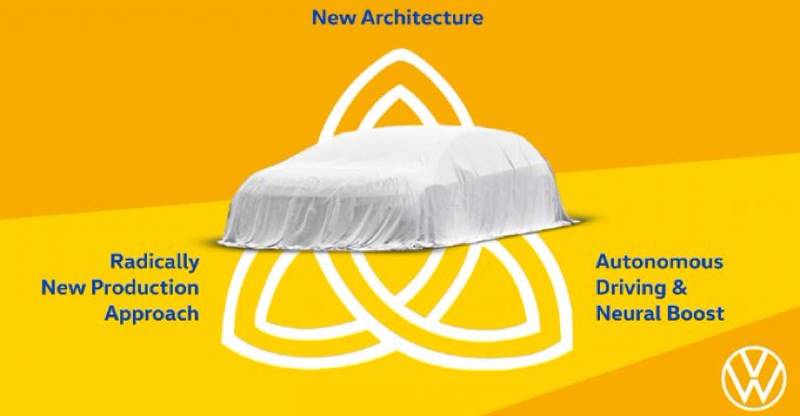German manufacturer Volkswagen is already preparing for competition in the future car market, which will be trending with green, autonomous, and more digital vehicles.
In the sedan market, Volkswagen is working on the Trinity Project, an all-electric sedan that will be produced in Wolfsburg from 2026 and will set new standards in terms of range, charging speed, and digitization.

The sedan, whose design has been exhibited by Volkswagen in the form of a silhouette, will also carry Level 4 autonomous vehicle technology. The project name Trinity comes from the Latin word “trinity” and stands for tri-unity.
Therefore, Trinity represents three important themes: a newly developed electronic platform with advanced software, simplification of the supply structure, and full and intelligent network production at the main plant in Wolfsburg.
“Trinity is sort of a crystallization point for our Accelerate strategy, our lighthouse project, our software dream car,”
“We are using our economies of scale to make autonomous driving available to large numbers of people and to build neural networks of learning. In this way, we create the conditions for a continuous exchange of data from our fleet of vehicles, for example; about traffic situations, roadblocks or accidents,”
CEO Of The Volswagen, Ralf Brandstätter
The Trinity development concept, said Bradstatter, prioritizes digitization, automation, and light construction. Future vehicle models such as the Trinity will be produced with significantly fewer variants, and the hardware will be largely standardized.

The cars will then have almost everything in them and customers will be able to activate the desired function “on-demand” at any time via the in-car digital ecosystem. This will significantly reduce the complexity of production.
By developing automobiles into software-based products, Volkswagen created the conditions for a new data-driven business model. Barriers to entry for individual mobility should be lowered while at the same time offering a more attractive usage package.





